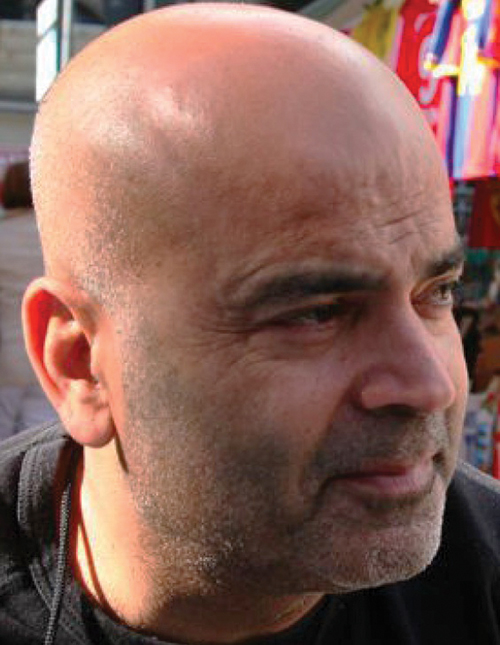Malhotra recognized
with ASBMB–Merck Award
, chairman of the cell and developmental biology program at the Centre for Genomic Regulation in Barcelona, has been named the winner of the 2013 ��������-Merck Award for his studies in understanding the mechanisms and machinery of membrane trafficking and Golgi function and biogenesis.

Malhotra began his research as a postdoctoral fellow in the lab of James Rothman, where he provided insight into the NSF protein in vesicle fusion and isolated the famous COPI-coated vesicles. In his nomination letter for Malhotra, Rothman said, “Malhotra is a very prominent senior cell biologist whose many contributions stand out not only in their substance but also because they are characterized by bold imagination and the development of new concepts.”
For the next 18 years, Malhotra was a professor at the University of California, San Diego. There he contributed numerous discoveries to the field. He identified a natural product from sponges called ilimaquinone, or IQ, which triggers the disruption of Golgi organization. These discoveries led to the establishment of the involvement of heterotrimeric G proteins, protein kinase D and diacylglycerol in vesicle formation and cell-surface transportation.
Malhotra’s research addressed the controversy of Golgi membrane fate during mitosis and identified a new cell-cycle checkpoint. He demonstrated that fragmentation of Golgi membranes is required for mitosis entry. The fragmented Golgi membranes then serve as templates for the formation of Golgi stacks in daughter cells.
Finally, Malhotra identified novel components in secretion after performing a genomewide screen in Drosophila. From that, he discovered a set of components necessary for Golgi structure and function. These novel genes were labeled transport and Golgi complex organization genes, or TANGOs. Aiding to the understanding of trafficking, Malhotra and colleagues recently reported unconventional protein secretion that bypasses the Golgi. This mode of secretion is mediated by autophagosome-like vesicles forming compartments called CUPS, for compartment for unconventional protein secretion.
Ari Helenius of the Institute of Biochemistry at the Swiss Federal Institute of Technology in Zurich, in his letter of support for Malhotra’s nomination, called him “an undisputed conceptual leader in the field of membrane transport.” Helenius continued: “In addition, he has been a pioneer in introducing new methodologies and experimental approaches.”
Malhotra will receive his award during the 2013 Experimental Biology conference in Boston, where he will deliver an award lecture. The presentation will take place at 9:05 a.m. April 22 at the Boston Convention and Exposition Center.
The ASBMB–Merck Award recognizes scientists with outstanding contributions to biochemistry and molecular biology research. It provides a plaque and $5,000 and covers transportation and expenses to attend the ASBMB annual meeting to present a lecture.
Enjoy reading ASBMB Today?
Become a member to receive the print edition four times a year and the digital edition monthly.
Learn moreGet the latest from ASBMB Today
Enter your email address, and we’ll send you a weekly email with recent articles, interviews and more.
Latest in People
People highlights or most popular articles

Cedeño–Rosario and Kaweesa win research award
The award honors outstanding early-career scientists studying cancer, infectious disease and basic science.

ASBMB names 2026 award winners
Check out their lectures at the annual meeting in March in the Washington, D.C., metro area.

Peer through a window to the future of science
Aaron Hoskins of the University of Wisconsin–Madison and Sandra Gabelli of Merck, co-chairs of the 2026 ASBMB annual meeting, to be held March 7–10, explain how this gathering will inspire new ideas and drive progress in molecular life sciences.

Castiglione and Ingolia win Keck Foundation grants
They will receive at least $1 million of funding to study the biological mechanisms that underly birds' longevity and sequence–function relationships of intrinsically disordered proteins.

How undergrad research catalyzes scientific careers
Undergraduate research doesn’t just teach lab skills, it transforms scientists. For Antonio Rivera and Julissa Cruz–Bautista, joining a lab became a turning point, fostering critical thinking, persistence and research identity.

Simcox and Gisriel receive mentoring award
They were honored for contributing their time, knowledge, energy and enthusiasm to mentoring postdocs in their labs.

